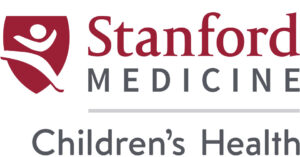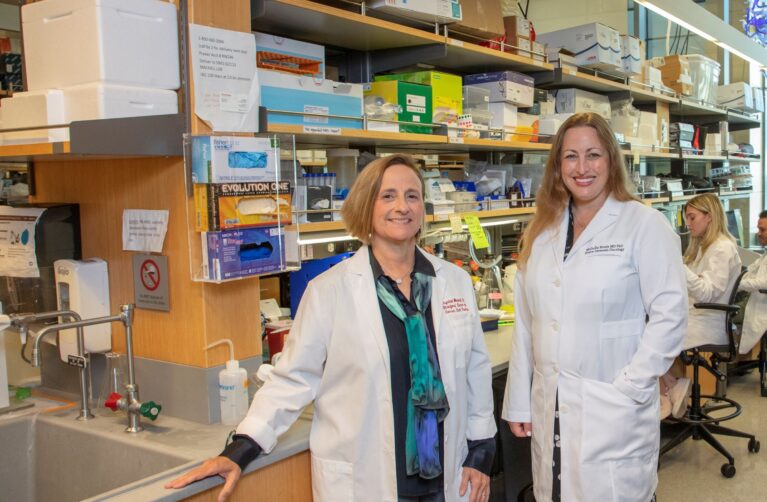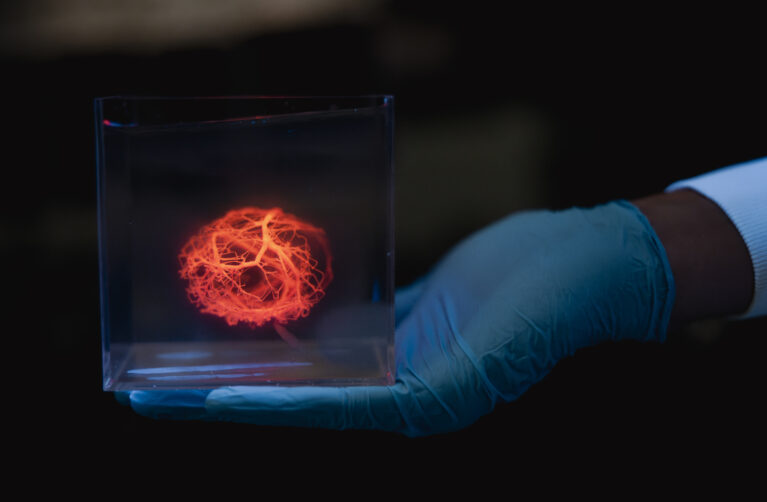Nurses in the Heart Center deliver extraordinary care and compassion on the front lines.
It’s not uncommon this time of year to see refrigerators covered with holiday cards and warm wishes from friends and family. But the multitude of cards on display in our Children’s Heart Center’s break rooms often share sentiments much deeper than the average “Happy Holidays.” They feature proud updates from parents whose children were once fighting for survival just down the hall. Many of the cards are addressed to individual nurses, whom families remember fondly even five or 10 years after their child has left our hospital.
The 150 nurses working in the Heart Center build strong bonds with patient families as they serve as the most constant and hands-on point of connection between patients and medical teams.
Catherine Krawczeski, MD, the James Baxter and Yvonne Craig Wood Director of the Cardiovascular Intensive Care Unit (CVICU), believes that the care provided by Heart Center nurses goes beyond what most people imagine.
“Our nurses are the front-line providers for often extremely critical patients, managing the most complex and ever-changing technologies,” Krawczeski says. “And while doing so, they provide comfort to frightened patients and families during a time of crisis, celebrate with them when things go well, and are a source of strength and support for the times they do not.”
Whether they are dancing with a teenager to his favorite 1980s music or gently stroking the arm of a toddler while monitoring her connection to a life-saving machine, the depth of dedication and compassion that Heart Center nurses bring to work is almost limitless, says Juanita Hickman, PhD, MSN, RN, interim director of inpatient care in the Heart Center and Pediatric Intensive Care Unit. “To be a nurse in the Heart Center, it takes determination, empathy, and a willingness to learn something new every day.”
Hickman says that throughout the Heart Center, nurses carry a sentiment of “service before self” and a commitment to excellence. Many of the Heart Center’s nurses have been on staff for more than two decades, watching patients grow from tiny infants to college students. The registered nurses (RNs) in the Heart Center have various degrees and have specific skill sets. A high percentage holds a bachelor’s or master’s degree and some are certified in a nursing specialty.
“Studies have shown a correlation between the level of patient care and the level of education of the nurse,” Hickman says, brimming with pride in her team.
The Heart Center’s reputation as a nationally ranked pediatric cardiology program has attracted nurses from as far away as New Zealand, the Philippines, and China who were drawn to the opportunity to be involved with patient care as well as innovative research.
Hickman estimates that nearly one-third of Heart Center nurses are involved in clinical research, including pilot studies about a congenital condition called tetralogy of Fallot, pain management in cardiac surgery patients, and how to best educate parents as they prepare to bring their child home from the hospital.
“Having as many nurses involved in research as we do is unprecedented,” she says. “But we are the front line and the ‘doers,’ so what better way to make sure something can be implemented at the bedside than to have nurses involved?”
Sometimes, it takes unconventional measures to care for children in the Heart Center. Patria Eustaquio, RN, the patient care manager for the center’s step-down unit, 3 West, recalls with a laugh a memorable scenario when a 7-year-old girl refused to allow her nurses to insert a nasogastric tube. The tube, which travels from the nose to the stomach, is essential to providing food or medicine to a patient.
“Her nurse kept assuring her that it didn’t hurt,” Eustaquio remembers. “The little girl asked the nurse, ‘Have you had it done before?’ and the nurse said, ‘No, but I can show you.’ She then placed a similar tube into her own nose and down her throat. She removed it in front of the patient, who then said, ‘Okay. Now I can do it.’”
While far beyond the call of duty, Heart Center nurses take exceptional steps to provide extraordinary care for patients, including those in the midst of health crises.
Melanie Munsayac, MSN, RN, the CVICU patient care manager, oversees nurses who skillfully care for numerous patients with congenital heart defects. A tool that is sometimes used to support a child’s recovery is extracorporeal membrane oxygenation (ECMO), a machine that circulates oxygen and blood through the body when the heart and lungs are struggling. Nurses primarily monitor these machines, and Munsayac says they balance the enormity of their responsibilities while maintaining compassionate care for the families at the child’s bedside.
“Behind every procedure or high-pressure situation are scared and concerned family members,” says Munsayac. “Our nurses recognize that, and their ability to think critically while maintaining strong relationships with patients and families allows them to communicate openly and provide support during incredibly stressful times.”
Krawczeski agrees. “Their skill and compassion are the cornerstone of the Heart Center.”
This article first appeared in the Fall 2015 issue of Lucile Packard Children's News.








